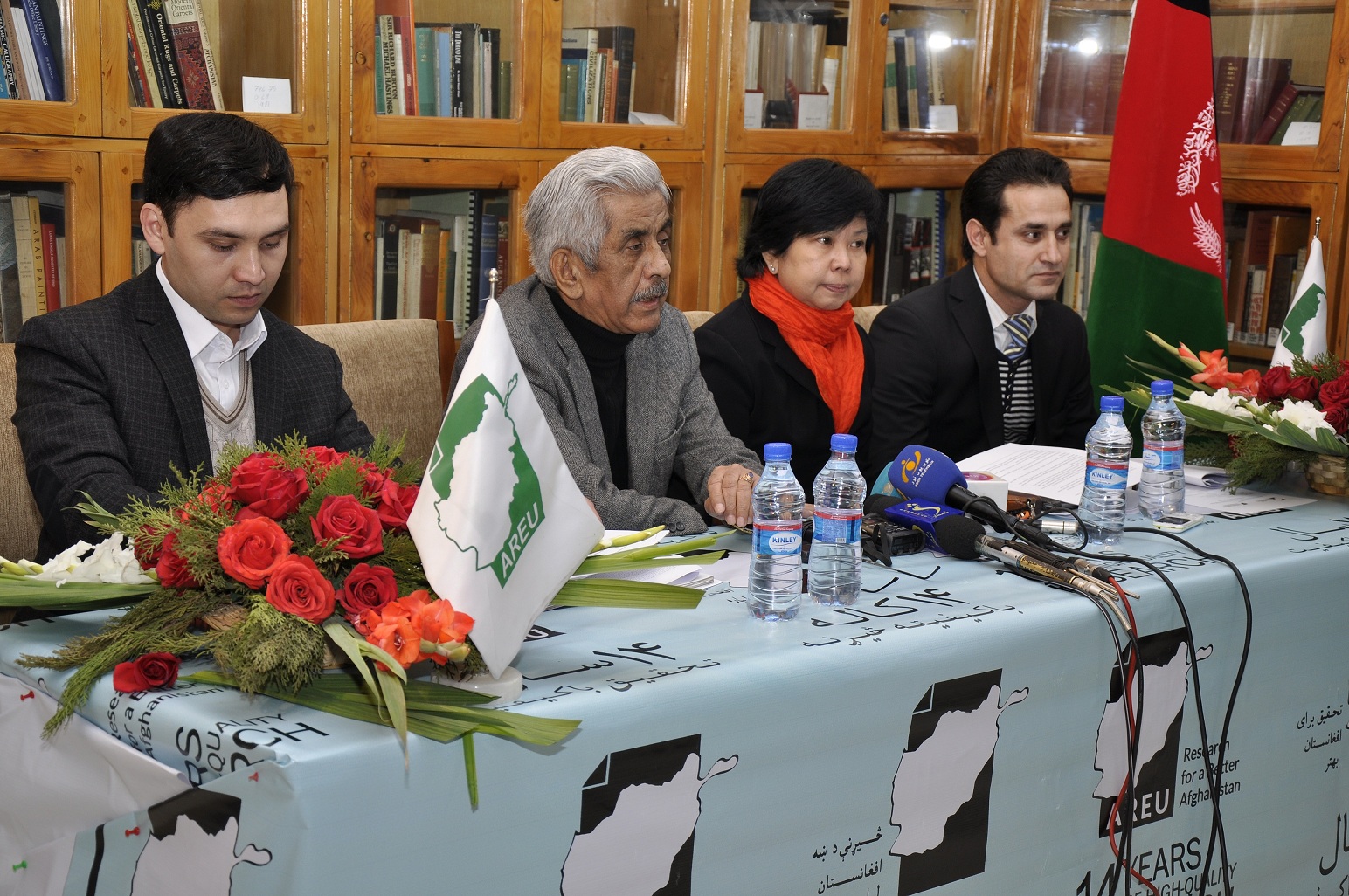The Other Side of Gender Inequality: Men and Masculinity in Afghanistan
Swedish Committee for Afghanistan (SCA) and Afghanistan Research and Evaluation Unit (AREU) jointly launched research on masculinity phenomena in Afghanistan called “The Other Side of Gender Inequality: Men and Masculinity in Afghanistan”. This research which was financially supported by SCA was conducted by the Afghanistan Research and Evaluation Unit -an independent research organization aiming at an in-depth understanding of various notions of being an Afghan man and its contribution to gender inequality.

Research paper on Masculinity was formally unveiled by the SCA Country Director Mr. Jorgen Holmstrom and Dr. Chona R. Echaves of AREU during a press conference on Thursday 21st of January 2016 in Kabul.
“The findings show that not only men but also women are agreed to the role of men as the power holders, decision makers, and owners having the huge responsibility of fulfiling his family’s needs. But of course the level of agreement defers by the level of education, sex, age and the province,” says SayedMahdi Mosawi, the Senior Research Officer at Afghanistan by Afghanistan Research and Evaluation Unit.
The research is conducted in Nangarhar, Kabul, Bamyan and Takhar provinces of Afghanistan by Afghanistan Research and Evaluation Unit, in which 200 men and 200 women were interviewed. The criteria for selection of research areas was the visible differences in the relation between men and women.
Men and women believe that at any cost men should fulfil the needs of their family. This belief beside others puts extra pressure on men. SayedMahdi Mosawi recommends for facilitation of open discussion between men and women to talk about extra pressure on men.
“Policies still fail to accommodate the emerging research that points toward the advantages of including men and boys in programmes to promote gender equality and prevent gender- based violence” the paper argues.
“Without a concrete strategy to move beyond the static generalizations and work both with and from personal experience, men will continue to be marginalized from discussions of gender and remain “the problem”, as well as continue to dominate women’s lives”, the paper adds.
This research explains how men’s attitudes, perceptions, and actions are influenced by socio culturally constructed ideas of manhood, and how these factors further affect the interaction between men and women in Afghan communities.
Swedish Committee for Afghanistan will consider the findings of this research to promote gender equality through its programmes in the future